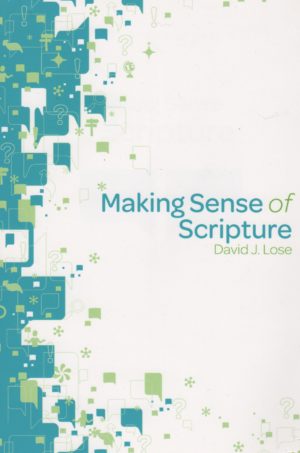
What do I mean? Well, like most sentient human beings, I wonder about what it’s all about. Why do some dastardly folks escape pain and agony and an ugly death when good, faithful, loving folks suffer cancer and MS and ALS and any other host of maladies? I also ponder, when I have a moment in this fast-paced world, what the Bible means to me, what it holds for me, and how I should be reading it and understanding it. I’m a lifelong Christian and, now that I’m in my third read-through of the Good Book, I remain as puzzled as I was my first time through. What’s that, you say? A guy who’s taught or been involved with confirmation classes in both the Episcopal and ELCA churches for the better part of three decades still can’t figure it out? True, that. As an example, on my current read-through of the Bible (cover to cover) I came across this verse which, for the life of me, I can’t make hide nor hair of:
When the people began to multiply on the face of the ground, and daughters were born to them, the sons of God saw that they were fair; and they took wives for themselves of all that they chose. The the Lord said, “My spirit shall not abide in mortals forever for they are flesh; their days shall be one hundred and twenty years.” The Nephilim (see https://en.wikipedia.org/wiki/Nephilim) were on the earth in those days-and also afterward-when the sons of God went to the daughters of the humans … (Genesis 6:4)
What the hell?
I picked up a copy Lose’s book at my church, Grace ELCA in Hermantown, hoping it might provide a key to deciphering this passage and others, both in the Old and New Testaments, that confound me. I’m happy to say that, while Lose provides no easy answers, he does set out a framework for analyzing and understanding the Good Book that relies upon faith, history, and prayer. In this way, the author separates himself from those literalists who insist that the words contained in the Bible are the inerrant words of God. I’ve previously read Roger Cragun’s masterful work on the origins of the Good Book, The Ultimate Heresy (see my review by clicking on the “Search” tab above and inserting the title), in which Cragun argues that the Word is not the words linked, one to another, in the Bible’s text, but rather, the Word is the personal story and dignity and divinity of Jesus. Jesus is the Word, not the words set about in print we rely upon every Sunday in church. David Lose rehashes, in less detail, some of what Roger was getting at but goes a stop further: He gives lay readers of the Bible a framework upon which to read, discuss, and understand the witness of the book, a means to explore everything from the difficult and seemingly outdated rules in Leviticus to the love expounded by John. His overarching thesis, one that makes abundant sense, it is that only through reading seemingly confusing passages from the Good Book and coming together to discuss those passages in community when we are able to understand.
Makes sense to me as I’ve always relied upon my priests and pastors to illuminate and explain the verses and scenes and passages from the Bible that are part of our Sunday morning and Wednesday evening services. But there needs to be more, according to Lose, more work done by faithful believers in ferreting out the basis of faith and truth as granted to us by God. The author carefully cautions us, as members of a system of belief, to understand the difference between analytical fact and a faith deeply held. That’s, in a nutshell, something that folks who view the Bible outside its history (and the genesis of the scriptures they hold so dear) , folks who believe every word and every passage in the Bible was personally inscribed by God (either in the hearts of men or on some stone tablet) don’t seem too eager to discuss. We should. Discuss such things, I think. So we better understand our shared faith and come to a mutual understanding of what it all means.
This is a slender, power-packed manual; a “how to” guide for reading scripture, with the ultimate goal of understanding Jesus’ life and mission. Well done, Mr. Lose, well done. Your work didn’t answer all my questions but it did lay out a path for me to seek out community and discuss my doubts with fellow believers.
4 stars out of 5.
Peace.
Mark


